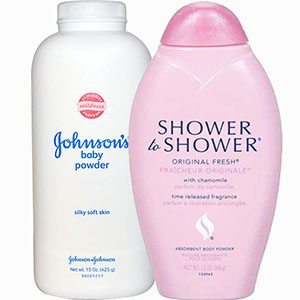Many of us grew up with our mothers giving us only the best baby products to keep us fresh and clean. They would tenderly nurture our wounds and bathe us, scrubbing away the day’s adventure. To keep the tears caused by rashes away, they would powder us using Johnson & Johnson Baby Powder.
Shaking a little baby powder into their under garments, keeping them fresh, became a part of many women’s daily routine. No one knew at the time the potential risks associated with long term use of talcum powder… until a St. Louis jury awarded $72 million to the family of Jacqueline Fox and $55 million to Gloria Ristesund who both claimed that they developed ovarian cancer from talcum powder and that Johnson & Johnson knew of the potential link between talcum powder and ovarian cancer. Both juries found that Johnson & Johnson knew that baby powder could cause ovarian cancer and they did not tell families about it.
Since the 1970’s the manufacturers of baby powder, Johnson & Johnson, claimed to have stopped using talc that contained asbestos due to its health risks. But then why do they not warn about the dangers of talc and the link with ovarian cancer?
On their Safety & Care Commitment page Johnson & Johnson states “in fact, no regulatory agency has ever required a change in labeling to reflect any safety risk from talc powder products.”
In short, the FDA and USP have not found enough scientific evidence that directly links ovarian cancer and the use of talc powder.
That is not to say there is no connection. Medical biopsies show talc particles embedded into the ovaries of women with this form of cancer; most of whom claim daily use of baby powder.
In 1997 an internal memo from a Johnson & Johnson medical consultant said to deny the risk of hygienic talc causing ovarian cancer is “denying the obvious.”
Ovarian cancer is ranked as 8th in most common type of cancer, and it is the “fifth leading cause of cancer-related death among women” according to the Ovarian Cancer National Alliance.
NastLaw started investigating talcum powder lawsuits because we want Johnson & Johnson to claim responsibility for failing to inform the public about the dangers of talc. We want them to provide a proper warning label and give people the choice to use their products fully knowing the risks they face.
If you or anyone you know has been affected by ovarian cancer and used talc powder daily, you may have a case and should consult a NastLaw attorney today

